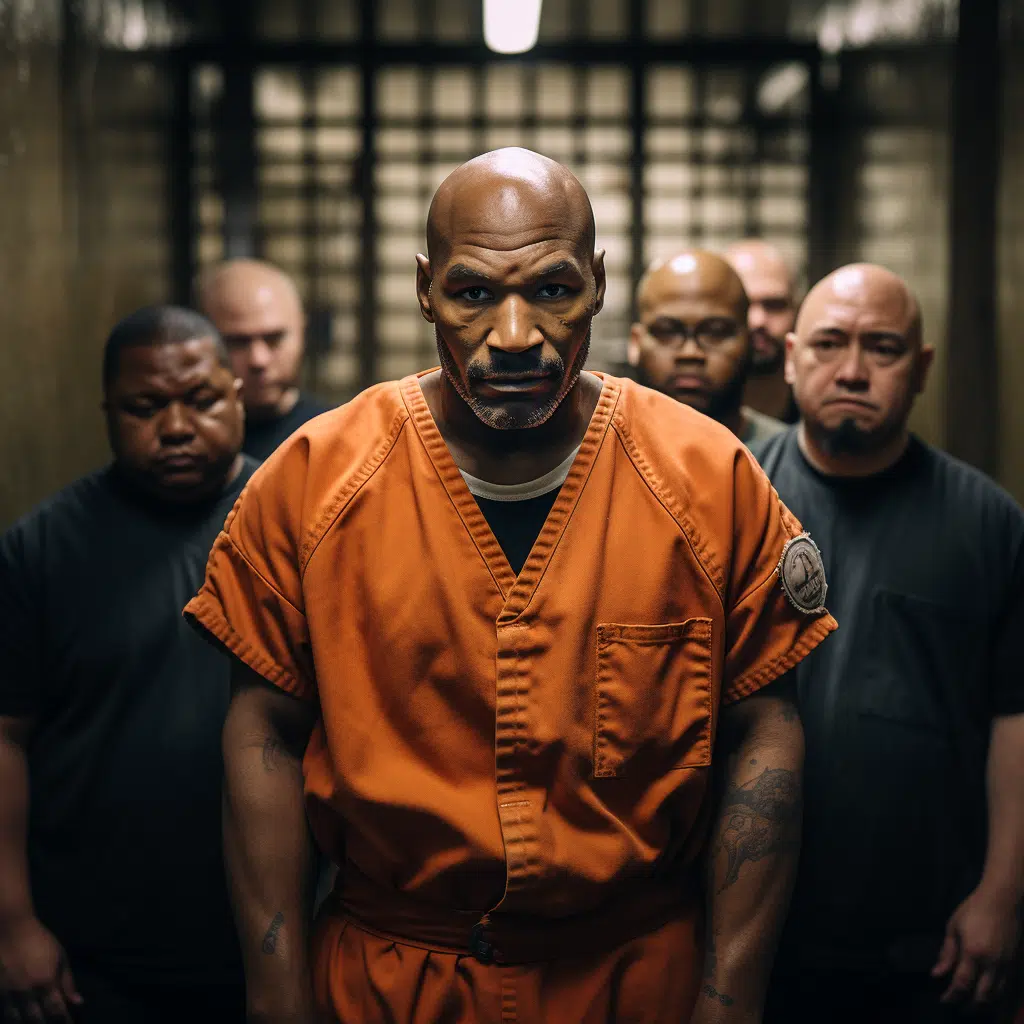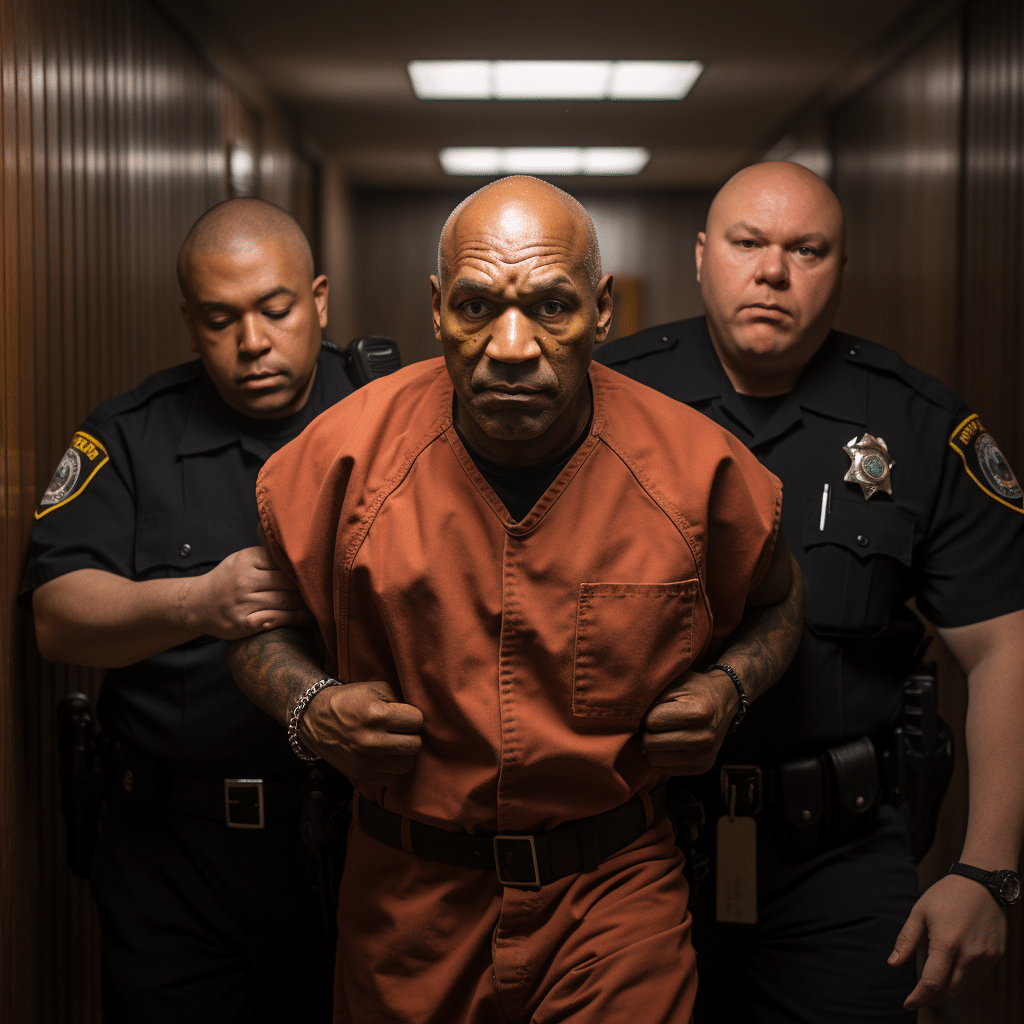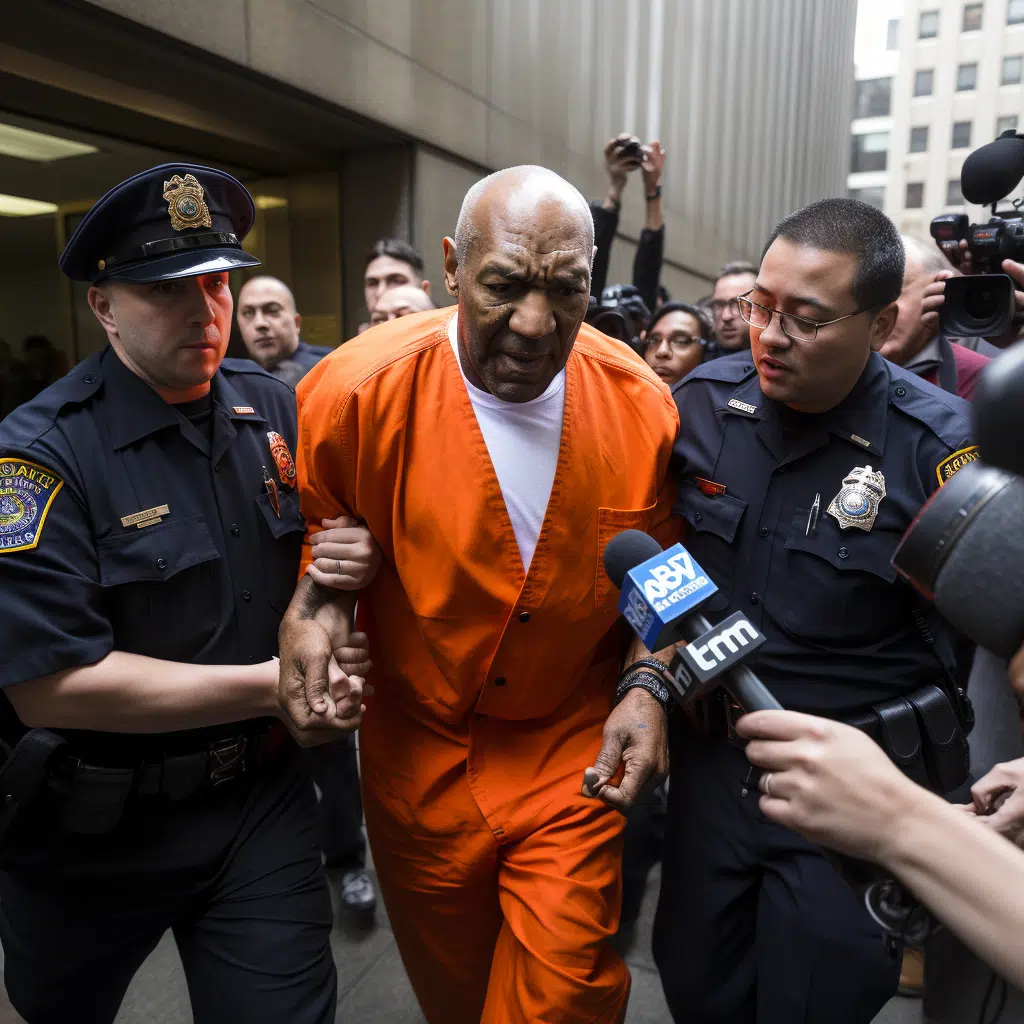When we talk about Mike Tyson, the name itself is synonymous with power, dominance, and controversy. The once-undefeated heavyweight champion of the world wasn’t just a boxer—he was a phenomenon. But behind the glitz and glamour of his rise to fame lies a darker side of his story. So, why did Tyson go to jail? Let’s dive into the details and uncover the truth behind one of the most infamous chapters in sports history.
Tyson’s journey from being a street-smart kid in Brooklyn to becoming the youngest heavyweight champion in history is nothing short of legendary. But every great story has its twists, and Tyson’s life took a turn for the worse when he found himself behind bars. The reasons behind his incarceration are as shocking as they are complex, and we’re here to break it all down for you.
This isn’t just about the legalities or the courtroom drama. It’s about understanding the man behind the headlines—the struggles, the choices, and the consequences that shaped his life. If you’ve ever wondered why Tyson ended up in jail, this article will give you all the answers you’re looking for. So, buckle up, because we’re about to take you on a rollercoaster ride through Tyson’s darkest days.
Read also:Unveiling The Future A Journey Into What Lies Ahead
Table of Contents
- Early Life and Rise to Fame
- Biography of Mike Tyson
- Why Did Tyson Go to Jail?
- Details of the Legal Case
- Impact on Tyson’s Boxing Career
- Life After Jail
- Lessons Learned from Tyson’s Story
- Public Perception and Legacy
- Quotes from Tyson on His Jail Experience
- Conclusion: Why Did Tyson Go to Jail?
Early Life and Rise to Fame
Before we dive into why Tyson went to jail, let’s rewind to his early days. Born on June 30, 1966, in Brooklyn, New York, Tyson grew up in one of the toughest neighborhoods in the city. His childhood was marked by poverty and violence, but it also shaped him into the fighter he would become. At the age of 13, Tyson was already making waves in the amateur boxing circuit, and by the time he turned pro at 18, he was a force to be reckoned with.
By the late 1980s, Tyson was unstoppable. He became the youngest heavyweight champion in history, defeating Trevor Berbick in 1986 to claim the title. His ferocious style in the ring earned him the nickname “Iron Mike,” and fans couldn’t get enough of him. But as his fame grew, so did the scrutiny—and the trouble.
What Led to Tyson’s Downfall?
While Tyson’s boxing career was skyrocketing, his personal life was spiraling out of control. Issues with substance abuse, relationships, and legal troubles began to surface. It wasn’t long before his bad decisions caught up with him, leading to the infamous incident that landed him in jail. But what exactly happened?
Biography of Mike Tyson
Before we get into the nitty-gritty of why Tyson went to jail, let’s take a closer look at the man himself. Below is a quick overview of Tyson’s life, from his early years to his rise as a boxing champion.
Mike Tyson’s Personal Data
| Full Name | Michael Gerard Tyson |
|---|---|
| Date of Birth | June 30, 1966 |
| Place of Birth | Brooklyn, New York, USA |
| Height | 5'10" (178 cm) |
| Weight | 200–220 lbs (91–100 kg) |
| Profession | Professional Boxer |
Tyson’s life wasn’t just about boxing. He’s also an entrepreneur, actor, and public speaker. But it’s his boxing career that defines him, and it’s the choices he made during that time that led to his downfall.
Why Did Tyson Go to Jail?
Now, here’s the million-dollar question: why did Tyson go to jail? The short answer is that he was convicted of raping Desiree Washington, a Miss Black America contestant, in 1992. The incident took place in Indianapolis after a boxing event, and it sparked a media firestorm that would change Tyson’s life forever.
Read also:Music Streaming Revolution How It Changed The Way We Listen To Music
But let’s break it down further. Tyson’s trial was one of the most high-profile cases of the 1990s, and it exposed the darker side of celebrity culture. The trial lasted for weeks, with both sides presenting their arguments. In the end, Tyson was found guilty and sentenced to six years in prison, serving three before being released on parole.
What Were the Charges?
Tyson was charged with first-degree rape, a serious offense that carries heavy penalties. The prosecution argued that Tyson had forcibly raped Washington in his hotel room after a party, while the defense claimed it was consensual. The case hinged on the credibility of both parties, and ultimately, the jury sided with Washington.
Here’s a quick summary of the key points:
- Tyson met Washington at a boxing event in Indianapolis.
- They went back to his hotel room after a party.
- Washington claimed she was raped, while Tyson insisted it was consensual.
- The trial lasted several weeks, with both sides presenting evidence.
- Tyson was found guilty and sentenced to six years in prison.
Details of the Legal Case
The legal case against Tyson was a complex one, involving issues of consent, credibility, and celebrity privilege. The trial brought to light many uncomfortable truths about how society views sexual assault, especially when it involves high-profile individuals.
During the trial, the prosecution presented evidence that Tyson had a history of violent behavior, both in and out of the ring. They argued that his dominance in the boxing world translated into a sense of entitlement, leading him to believe he could do whatever he wanted. On the other hand, the defense portrayed Tyson as a victim of a setup, claiming that Washington had ulterior motives.
Key Evidence in the Case
Some of the key pieces of evidence presented during the trial included:
- Testimonies from witnesses who were present at the party.
- Medical examinations that supported Washington’s claims.
- Statements from Tyson’s friends and associates about his behavior.
Ultimately, the jury found Tyson guilty, and the verdict sent shockwaves through the sports world. It was a reminder that even the most powerful figures are not above the law.
Impact on Tyson’s Boxing Career
Tyson’s imprisonment had a devastating impact on his boxing career. At the time of his arrest, he was at the peak of his powers, undefeated and considered one of the greatest heavyweights of all time. But his absence from the ring allowed other fighters to rise, and by the time he was released, the landscape had changed dramatically.
When Tyson returned to boxing in 1995, he faced a steep uphill battle. His first fight after prison was against Buster Mathis Jr., a journeyman fighter, and Tyson won by knockout. But the magic was gone. Over the next few years, Tyson struggled to reclaim his former glory, losing to fighters like Evander Holyfield and Lennox Lewis.
Lessons from Tyson’s Career
Tyson’s story is a cautionary tale about the dangers of fame and the importance of making good decisions. His fall from grace serves as a reminder that success is fragile and can be lost in an instant. For aspiring athletes, Tyson’s experience highlights the need for discipline, both in and out of the ring.
Life After Jail
After his release from prison, Tyson embarked on a new chapter in his life. He continued to box for several more years, but his heart wasn’t in it anymore. Instead, he turned his attention to other pursuits, including acting, writing, and public speaking. Today, Tyson is a global icon, known as much for his personality as for his boxing prowess.
But life after jail wasn’t easy for Tyson. He faced financial struggles, personal issues, and a constant battle with his own demons. Yet, through it all, he managed to reinvent himself and find new ways to connect with his fans.
Tyson’s Comeback Journey
Here are some of the highlights of Tyson’s life after prison:
- Released from prison in 1995.
- Returned to boxing, winning several fights before losing to Holyfield and Lewis.
- Became an actor, appearing in films like "The Hangover" and "Ip Man 3."
- Launched a successful podcast, "Hotboxin' with Mike Tyson."
- Continued to speak out on issues of race, inequality, and personal growth.
Lessons Learned from Tyson’s Story
Tyson’s journey from the streets of Brooklyn to the top of the boxing world and back is a powerful lesson in resilience and redemption. His story teaches us that no matter how high we rise, we must remain grounded and make choices that align with our values.
Here are some key takeaways from Tyson’s life:
- Success is fleeting if not built on a solid foundation.
- Reputation matters, both in sports and in life.
- Second chances are possible, but they require hard work and humility.
- Personal growth is a lifelong journey, not a destination.
Public Perception and Legacy
Tyson’s legacy is a mixed bag. On one hand, he’s remembered as one of the greatest boxers of all time, a man who revolutionized the sport with his explosive style and unmatched power. On the other hand, his legal troubles and personal issues have tarnished his reputation in the eyes of many.
But Tyson has never shied away from his past. In interviews and public appearances, he’s been open about his mistakes and the lessons he’s learned. This honesty has helped him rebuild his image and connect with a new generation of fans.
Quotes from Tyson on His Jail Experience
Here are a few quotes from Tyson reflecting on his time in jail:
- “Jail was a blessing in disguise. It made me realize what was really important in life.”
- “I was a different person before jail. I thought I was invincible, but jail taught me humility.”
- “The worst part of jail wasn’t the confinement—it was the loss of freedom and respect.”
Conclusion: Why Did Tyson Go to Jail?
In conclusion, Tyson went to jail because of a series of poor decisions that led to his conviction for rape. While the incident itself was tragic, it also served as a turning point in his life, forcing him to confront his flaws and work towards redemption.
Today, Tyson is a testament to the power of resilience and personal growth. His story reminds us that no matter how far we fall, we can always rise again—if we’re willing to do the work.
So, what do you think? Do you believe Tyson’s experience was a wake-up call, or do you think he got what he deserved? Leave your thoughts in the comments below, and don’t forget to share this article with your friends. Together, let’s keep the conversation going!


